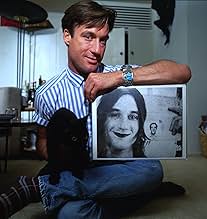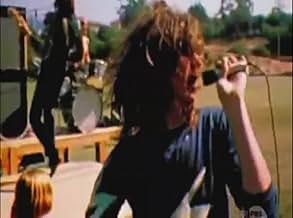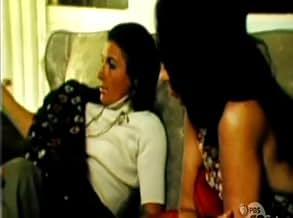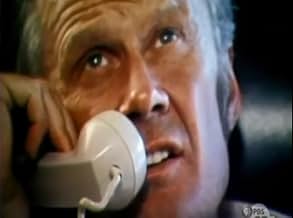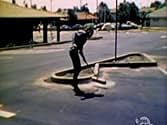Aggiungi una trama nella tua linguaFollows the real lives of the Loud family, a motley group of suburbanites.Follows the real lives of the Loud family, a motley group of suburbanites.Follows the real lives of the Loud family, a motley group of suburbanites.
Sfoglia gli episodi
Trama
Lo sapevi?
- ConnessioniFeatured in Television: The Rise and Fall of the Documentary (1985)
Recensione in evidenza
While channel-surfing last night I came across what appeared to be an old, fuzzy color film of a drag queen review on Public TV last night. Intrigued, I looked it up and discovered it was an episode of the old pioneering reality series "An American Family," something I had completely forgotten for the last 30 years. This was the episode where Pat Loud goes to New York to visit with her son Lance, who was openly gay and living beyond his means at the Chelsea Hotel amongst other arty young gay men. This must have been pretty shocking stuff for the early 1970s. I really knew nothing about Lance, but listening to his very young self rambling incoherently about what he wanted out of life, I felt a bit sad for him, and on searching the Internet the next day I found out that he had died from complications of AIDS in 2001. He lived a colorful life that was not without success (punk band front man, journalist), but back then in the 1970s he looked to me like one sad, confused kid.
I still recall the media hype surrounding this series, and watching the premier back in 1973 when it first aired. What struck me most about this California family then was their considerable affluence, so foreign to my own life experience. I remember seeing a report, aired some time after the series had run, in which Corporate executive Bill Loud (the father) complained about the effect it had on the life of his family, and how his co-workers regarded him. That "Lance in New York" episode certainly must have given those old-fashioned corporate guys a good chuckle. But the report also spoke to the vehement class hatred which the series had unexpectedly stirred up. Letters sent to the Loud family contained threatening statements like "you'd better watch out for your kids," and so on. I can, in fact, vividly recall the Loud siblings being introduced one by one in that premier episode, and the shout of disdain my mother issued when the youngest son was shown noisily practicing his trombone in his bedroom. Why that disdain for such an innocent activity? Well, if you've spent your entire life living in cramped urban apartments, you know that you can't let your child learn the friggin' trombone at home (assuming you can buy the damned thing for him in the first place), unless you want to risk eviction. Envy? Yeah, sure, but sometimes it gets the better of you. Class hatred in this country seems likely be exacerbated in the next few years by both the major political parties. Some things never change.
This New York episode was certainly a fascinating time capsule of the late hippie era. I wonder if you can still climb to the top of a fountain in the park (as someone was shown doing in this episode) without getting arrested in what is still pretty much Giuliani's New York?
I still recall the media hype surrounding this series, and watching the premier back in 1973 when it first aired. What struck me most about this California family then was their considerable affluence, so foreign to my own life experience. I remember seeing a report, aired some time after the series had run, in which Corporate executive Bill Loud (the father) complained about the effect it had on the life of his family, and how his co-workers regarded him. That "Lance in New York" episode certainly must have given those old-fashioned corporate guys a good chuckle. But the report also spoke to the vehement class hatred which the series had unexpectedly stirred up. Letters sent to the Loud family contained threatening statements like "you'd better watch out for your kids," and so on. I can, in fact, vividly recall the Loud siblings being introduced one by one in that premier episode, and the shout of disdain my mother issued when the youngest son was shown noisily practicing his trombone in his bedroom. Why that disdain for such an innocent activity? Well, if you've spent your entire life living in cramped urban apartments, you know that you can't let your child learn the friggin' trombone at home (assuming you can buy the damned thing for him in the first place), unless you want to risk eviction. Envy? Yeah, sure, but sometimes it gets the better of you. Class hatred in this country seems likely be exacerbated in the next few years by both the major political parties. Some things never change.
This New York episode was certainly a fascinating time capsule of the late hippie era. I wonder if you can still climb to the top of a fountain in the park (as someone was shown doing in this episode) without getting arrested in what is still pretty much Giuliani's New York?
I più visti
Accedi per valutare e creare un elenco di titoli salvati per ottenere consigli personalizzati
- How many seasons does An American Family have?Powered by Alexa
Dettagli
- Tempo di esecuzione12 ore
- Colore
Contribuisci a questa pagina
Suggerisci una modifica o aggiungi i contenuti mancanti

Divario superiore
By what name was An American Family (1973) officially released in India in English?
Rispondi
